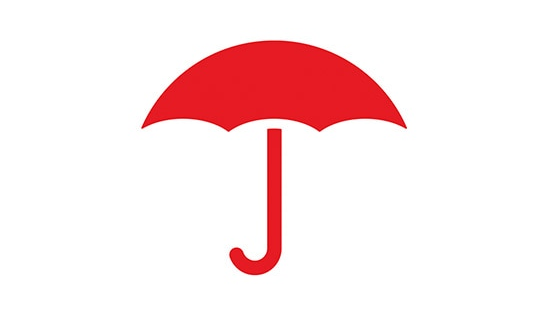Transportation Business Resources

Protecting your cargo and your transportation business is our business. Travelers is dedicated to helping freight brokers, fleet operators and logistics firms reduce preventable losses and costs through our products, vendor alliances and claim processing. We use our transportation experience and science to assist companies with security best practices, proper securement techniques for loading and handling, theft prevention and road safety issues.
Travelers on Freightwaves Podcast
Freightwaves is the leading provider of trucking news, media and analytics for truckers, intermodal and logistic operators. Travelers has recently contributed to the Freightwaves “What the Truck” Podcast series to share insights on topics ranging from choosing the right insurance carrier to commonly overlooked coverages to trends in cargo theft. Give each a listen.
Podcast #51: 2025 Industry Predictions
Join us on the latest FreightWaves Podcast as Scott Cornell, Travelers Transportation Lead and Crime and Theft Specialist, shares his expert insights on the key trends shaping the transportation industry in 2025 and how to help prepare for risks. Discover the latest on cargo theft, social engineering and federal initiatives to combat these issues.
Aired: 1/22/2025
Paid Content
(DESCRIPTION)
Show title with American flag-colored lettering: What the Truck??? On the right-hand side is a list of topics titled Today's show with the following topics in descending order: Scott Cornell. Trucking insurance trends for 2025. Mini Final Mile. wttgear.com. John Kemp. At the top, logos appear for SiriusXM, YouTube, LinkedIn, Facebook, Apple Podcasts, Spotify, TikTok and X. At bottom right is a QR code and an image of a truck with text: Truck Parking Club.
(SPEECH)
SPEAKER: Today, but let's visit with Scott Cornell, transportation lead and crime theft specialist at Travelers. Another year, more freight fraud and theft, Scott. It seems like new year, same story.
(DESCRIPTION)
Scott Cornell, Transportation Lead and Crime and Theft Specialist, Travelers
(SPEECH)
SCOTT CORNELL: Well, happy New Year. What a year 2024 was, right?
SPEAKER: What a year it was. And 2025, I mean, it's already off. It's already -- the South is frozen, man. Pigs are flying.
SCOTT CORNELL: Hey, I'm from Buffalo, New York, so I sit back and watch that stuff. I understand that they're not used to it down there. But I have snow trauma from my upbringing in Buffalo, so I'm glad I'm not in any snow. That's all I have to say.
SPEAKER: Well, I hope you don't have too much trauma from the Chiefs as well. Was pulling for Buffalo, but we'll see. We'll see. We'll see how it goes this weekend. Pulling for them. We'll have you jump through a table.
But how about the trends now? Buffalo trending. They're on the way up. How about what's trending in insurance for 2025?
(DESCRIPTION)
The topic Trucking Insurance Trends for 2025 lights up.
(SPEECH)
SCOTT CORNELL: Yeah, so Washington trending up too, right? I want to mention them. That's actually my team. So I'm happy to see them trending up. But I'm happy for the Bills too, having been from there. So good. Good to see. It would be nice to see some new teams, right--
SPEAKER: No doubt.
SCOTT CORNELL: --in the big game.
But when we talk about the trends, 2025, what we're hoping is that we establish the new normal. We're not expecting the big, massive jumps and increases that we've seen over the past couple years. We're hoping that it'll kind of level out.
Also, we know that the industry is getting a better grip on how they're dealing with this. There's been a lot of improvement by the industry. There's been a lot of offerings of different solutions to prevent some of this type of theft. So we're hoping/trying to have a glass-half-full mentality that we won't see the big jumps in numbers. We'll probably still see some increases, but we'll probably get to more of a new normal on that.
We're also hoping to see more involvement from the federal government. Now, I know you mentioned earlier about the FBI. We have seen really good activity from the FBI across the industry. The industry has experienced good cooperation with the FBI and Homeland Security over the last year, year and a half. Of course, they can't address every theft. They're going to work on the ones that they think that they can maybe have an impact on.
But there are currently three bills once the new administration settles in and the new House and Senate are all settled in and everything like that. There are three bills that we're aware of that would call for the federal government getting more involved in this type of theft and would establish -- each one of those three bills establishes funding for a federal task force. So, to be quite honest with you, from my perspective, I'd be happy to see any one of them pass as long as whatever bill gets passed has that funding for that federal task force.
We've also seen the FMCSA stand up a fraud team that's based in the DOT but working with the FMCSA to try and stem the purchase of MC numbers for fraudulent intentions or nefarious intent. We see these large, organized rings purchasing these MC numbers. They can then use them. They appear like a legitimate trucking company on paper because they bought an MC number, and so they can use that to get loads, to go out and bid on shipments, get those shipments, disappear with them.
They can also use them for what we've talked about in the past, which is that double-brokering scam. So in other words, they use that MC number to get through the original freight broker's vetting process, and then they can turn around and rebroker that to a legitimate trucking company. And again, I always want to stress that legitimate trucking company has no idea that they're being involved in this. They think they're dealing with a legitimate freight broker. And then the bad guys will redirect that freight to somewhere where they can get their hands on it and begin to launder the freight.
So by addressing this issue, we know that the FMCSA hopes to improve safety on the roads, ensure fair competition with the industry, and those efforts are crucial for protecting both the public and legitimate motor carriers that are trying to do business. The problem is when you get everybody thinking, "Hey, is this a legitimate trucking company or whatever?" sometimes a legitimate trucking company gets caught up in the wash with that, right? They're not doing anything wrong, but there's kind of a level of paranoia across the industry at some point.
So we're keeping a close eye on that. We're hoping 2025 will be a year where we start to see some of those numbers level off and not climb the way they've climbed over the last two years.
SPEAKER: Yeah, I mean, look, I reported on this show -- and the more we talk about strategic theft and I think the more this audience gets knowledgeable about it, they can hear all these things you're talking about when I go through these stories. They're like, oh yeah, that's what Scott had mentioned. But how do they protect themselves? I mean, it does seem like, at least in the case I recently talked about, maybe a failure to validate. Maybe you could be doing that better.
But how do we protect ourselves? Because you've got to take some ownership here, especially like you're starting to be blamed for this. You're starting to get liable. Let's be smart. How do we protect ourselves?
SCOTT CORNELL: Well, I think there's a couple of things. One, being up-to-date on what the evolving tactics are. Cargo thieves are constantly evolving their tactics, and most of the time when you see an evolution in tactic, it's a little bit of a branch off from an already-existing or already-being-used tactic, right? So when we talk about maybe that double-brokering scam or using an MC number that they've purchased to get a load -- as an example, if it's a temp-controlled load, they might tell you, hey, the reefer broke down. The load is spoiled. And they'll send you a receipt, and that receipt might be manipulated, but it's actually for a part, right? And they'll tell they had to do a repair on it, and so they had to purchase this part.
And then they'll tell you that they had to destroy the load, and they'll send you a destruction receipt. And that destruction receipt has probably been manipulated, and, in truth, they've only destroyed one pallet, and they've taken the receipt and manipulated that, and they're actually stealing the rest of the load, but they want you to believe that they've had to destroy it, right?
We've also seen some of the things that they do with GPS jamming. So they're using jammers to jam GPS when shippers and freight brokers and carriers are working together to put tracking in the loads. We've seen them also try and trick the light sensors on those tracking devices by putting them in paint cans and leaving them at the truck stop, so it appears as though the truck is actually still parked at the truck stop while they're taking it someplace else and offloading it. So being aware of those new tactics.
And then freight brokers have to adapt a multidisciplined approach to verifying the carriers that they're working with. They have to know that the carrier is who they say they are. And the good news is, there are several resources out there in the industry that are available to help you do that now.
Additionally, TAPA is coming out with the freight broker security standards. TAPA is going to release those probably in February, maybe March of this year. And you can use those to work with their key shippers, right? And shippers, I think, are going to start to look for that type of process being in place.
Also, work closely with your key shippers on using GPS tracking, taking advantage of GPS tracking, new technology. It's really affordable. Make sure you know where that load is.
SPEAKER: Should you have backups? Like you mentioned they're doctoring these documents and everything like that. Is it a good idea to keep backups on hand?
SCOTT CORNELL: I think it's a good idea to keep backups on hand. I think it's also, make sure you're taking advantage of all the bells and whistles if you're using, let's say, something like tracking, right? So with tracking, you can use geofencing, which means you can basically create an area where the truck should travel. You can create a geofenced lane. Or if the driver stops for a rest point, you can geofence it in there. That's just one of those things, but make sure you're taking advantage of all the technology that's available and all the bells and whistles that come with that technology.
And then anything you get at this point -- and I know it takes extra time, but anything you get -- if you get a receipt, a destruction receipt, or a repair receipt, unfortunately, you have to vet that. So if the destruction receipt is with ABC Salvage or whatever, you need to call ABC Salvage and make sure that the piece of paper you have in your hand is exactly the piece of paper that they issued for that destruction. Unfortunately, we're in a situation where you have to verify everything.
SPEAKER: Any final advice on protecting yourself as we embark on this 2025?
SCOTT CORNELL: Well, we're seeing more phishing, more social engineering on emails. So encrypt your communication channels. Make sure that the dispatch and the logistics coordination are using secure communication and that we're not clicking on things we shouldn't be clicking on. Again, making that front-line staff aware that, hey, there is potential for phishing, for social engineering, for hacking. We don't see a lot of hacking. It usually turns out to be phishing or social engineering emails that somebody clicks on.
I don't want to sound like a broken record, but I can't overemphasize enough, train that front-line staff. You're not trying to create a group of experts, but you're trying to create a spider sense that they have when they recognize that something's just not right, and then they can bring it to somebody, and we can sort through it.
SPEAKER: If you see something, say something. Scott, thank you so much for coming on today. I mean, hopefully this problem, with some of this tech and some of these solutions everyone's coming up -- the government, tech, insurance companies. Hopefully the problem gets better this year. We all need it, man. Thank you so much for coming by today.
SCOTT CORNELL: Always good to talk to you.
(DESCRIPTION)
An animated 18-wheeler appears with text: What the Truck???
(SPEECH)
SPEAKER: Take it easy.
Podcast #50: 2024 Recap and Potential Trends for 2025
Join Scott Cornell, Transportation Lead and Crime and Theft Specialist, on this episode of What the Truck?!?, as he highlights key transportation industry topics from 2024, and thoughts on what might be in store for 2025.
Aired: 12/16/2024
Paid Content
(SPEECH)
TIMOTHY DOONER:
(DESCRIPTION)
This content is brought to you by Travelers. Talk show host Tim Dooner sits behind a desk covered in toys, clothes, and other merch. A backdrop behind him, and some of the branded toys, say, What The Truck. A handwritten posted behind him says, Number 1 Supply Chain Gartner. In front of the desk, a US flag pokes out from a Christmas tree covered in ornaments. A news chyron runs below him. Above, logos for SiriusXm, YouTube, LinkedIn, Facebook, Apple Podcasts, Spotify, TikTok, and X are displayed. An agenda of topics to the right says, TODAY'S SHOW: MOTHER'S DAY CONVOY. RATE THE STRAP WORK. W T T GEAR DOT COM. SCOTT CORNELL AT TRAVELERS. TOP 4 INDUSTRY CHALLENGES IN 2024. A QR code below the agenda sits to the left of a logo that reads, Tai.
(SPEECH)
All right, Scott Cornell, Travelers' transportation lead and crime theft specialist.
(DESCRIPTION)
An interstitial graphic with a semi-truck that reads, What The Truck, appears before Scott appears via video call. Scott speaks from an office room. The What The Truck logo above the agenda has now become the red Travelers umbrella logo.
(SPEECH)
Man, you're not in New Jersey, right? You haven't seen these drones, have you?
Everyone's trying to make sense of this. And it's like a joke, but maybe it's real. Who knows?
(DESCRIPTION)
Scott speaks on mute.
(SPEECH)
Oh, wait. We just got muted.
SCOTT CORNELL: I'm not in New Jersey.
TIMOTHY DOONER: You ensure drones. Scott, you don't insure drones, do you?
SCOTT CORNELL: I don't know. Hey, that's a good question. I don't know. I'm not in that side of the company so I'm not sure if we insure drones. I know we use them for rooftop inspections and things like that. They're pretty neat. That technology is pretty awesome.
TIMOTHY DOONER: Well, man, look, drones might be a recap for 2025, but today we gotta recap a lot of the trends that happened in 2024. We talked about a lot of freight fraud and all that stuff. And, hey, it's good to have you back on the show.
(DESCRIPTION)
A yellow highlight on the agenda moves from, SCOTT CORNELL AT TRAVELERS, to, TOP 4 INDUSTRY CHALLENGES IN 2024.
(SPEECH)
SCOTT CORNELL: Always good to be on. I always have fun when I'm on with you, so I appreciate you having me back.
TIMOTHY DOONER: Well, let's look back at the year. It's been a crazy one. Ugh! I'm so sick of the words "AI" and "fraud," but that's all I've really talked about this year, I feel like.
What were the trends from your seat, though? What were like the top trends this year?
(DESCRIPTION)
Text: SCOTT CORNELL, TRANSPORTATION LEAD AND CRIME AND THEFT SPECIALIST, TRAVELERS.
(SPEECH)
SCOTT CORNELL: Yeah. So there's really four transportation industry topics that we're going to summarize today briefly. We'll start with theft. So we saw an unprecedented amount of theft come through 2024, and that's continuing to go up. There's no indication that it's going to go down.
In particular around the strategic theft area, the purchase of the MC numbers to basically carry on or pretend to be fraudulent companies to steal freight, things like that. I think what we're seeing looking ahead in that area is the FMCSA is making some changes.
They're bringing some resources to the table. They're making some changes in their processing, in their inner workings that they think will have somewhat of a positive impact on some of that fraud, some of that theft that's going on through the manipulation of MC numbers, things like that.
It does look like it should have some of that positive impact, that they're hoping it will. I think it takes a little bit of time to implement some of that. So we'll see how long that takes to get in place. But I think they have a good attitude about it, and they know that they're trying to make an impact there.
But don't let your guard down. As you mentioned, we're going to see the thieves continue to be armed with more technology, things like AI, like you mentioned, and the bad actors are going to be armed with a whole new set of tools to do the dirty work through 2025. So let's hope we see some leveling off in 2025 of the theft numbers.
Again, I don't see any reason to think they're going to come back down to what they used to be, but hopefully in 2025 we see some leveling off.
TIMOTHY DOONER: It's funny, I had a guest on last week. And they demoed a AI calling bot, and it was really good. The syntax was really good.
And it's really good if that's used for the forces of good, but that same exact technology could be used for the forces of evil. So AI callers that sound very realistic, that is something you're going to really have to look out for next year.
But right now, like we said, you gotta protect yourself. You gotta double- and triple-check that orders. You are a line of defense. What else you got?
(DESCRIPTION)
Text: SCOTT CORNELL, TRANSPORTATION LEAD AND CRIME AND THEFT SPECIALIST, TRAVELERS.
(SPEECH)
SCOTT CORNELL: Well, some of the other challenges that the industry faced-- basically, I think we've all agreed that this is one of the worst transportation economies that we've seen in a long time. There's an old saying that the transportation industry kind leads us into a recession, but they also lead us out of a recession.
Recently, we had Thom Albrecht, from Reliance Partners, speak at our conference in California, and Pete Mento spoke at the TAPA 2 conference just last week in Florida. And both are pretty well-known transportation economists, and they both seem to be indicating that second, third quarters of 2025, we should see some positive growth and things should start trending in a positive way. So that's great, and we're hoping to see that.
On one hand, you're hoping if the next administration can reduce fuel prices, that could have a positive impact on reducing the cost to move goods. But on the other hand, it'll be interesting to see what impact potential tariffs might have in that same space. So the general message for 2025 seems to be pretty consistent, that we'll see some positive uptick in 2025.
I think sometimes people lose track of the impact that high fuel prices can have on the costs of moving goods. In other words, if it costs less to move them, then hopefully we see that trickle down to the consumer. So hopefully, we'll see some of that.
TIMOTHY DOONER: Yeah. Now, everybody would love lower fuel prices. No arguments over there. What about common losses in the transportation industry? What are the prospects for them in 2025?
(DESCRIPTION)
With the first item highlighted, the agenda now reads, LOOKING AHEAD TO 2025, JOSH ANDERSON AT CP ANDERSON. WHISTLINDIESEL, RESTORING SEMIS, CELINA 52 INVADES BUC-EE'S. Text: SCOTT CORNELL, TRANSPORTATION LEAD AND CRIME AND THEFT SPECIALIST, TRAVELERS.
(SPEECH)
SCOTT CORNELL: Yeah. We saw increases across the transportation industry and vehicle accidents, rollovers. Some of that, some people might point that towards the driver shortage, high employee turnover rates just kind of exasperate those kind of causes of loss. In other words, experienced drivers can lead to things like bridge strikes or overpass strikes, impact, damage, rollovers, accidents, reefer mist settings, things like that, equipment issues.
Small holes or tears in a trailer can lead to water damage in cargo. So we see some of that going across. Common losses we saw, too, across the industry were truck fires and equipment failure that became leading factors in cargo losses due to maintenance and the cost of parts and labor and things like that.
TIMOTHY DOONER: Scott, any good news in terms of losses down the road, or anything else for that matter?
SCOTT CORNELL: I think there's a few bright spots. I think challenging times tend to produce some ingenuity. We see a lot of that. We continue to see good tech advances coming out. Smart trailers that can help monitor reefer temperatures. Smart trailers that can help tell you when the bearings are wearing out, when the brakes are wearing out.
And if you're more aware of that and if you get that information quicker, you can do the maintenance on that, and that can prevent truck fires. It can prevent accidents. It can prevent rollovers.
When you talk about the theft that we let off with, we're seeing some great technology companies come into the industry that are based around helping freight brokers to vet carriers, to weed out the bad actors and prevent some theft. We're seeing some legislation that's potentially being moved through the House and the Senate that would help allocate federal resources around cargo theft, potentially federal task force around that.
We've seen the federal government in general respond pretty well through 2024, the FBI, Homeland Security get involved in cargo theft investigations. So I think there's some pretty good bright spots that we have seen and are continuing to develop.
TIMOTHY DOONER: What do you think we're going to be seeing in 2025? What's that crystal ball looking like, brother?
(DESCRIPTION)
Text: SCOTT CORNELL, TRANSPORTATION LEAD AND CRIME AND THEFT SPECIALIST, TRAVELERS.
(SPEECH)
SCOTT CORNELL: I think keep an eye on things like produce, auto parts, pharma, electronics. Those are tough commodities. I think you've talked to Craig Leinauer about those a couple of times. Maybe even Elizabeth talked about those.
It'd be interesting to see if we have any new challenging commodities present themselves. Seems like every year something new pops up. The increased demand for lithium batteries, I know you've talked to Craig about that. They're highly combustible.
Solar panels are really sensitive commodities to move. They're expensive if they get damaged. So I think keep an eye on some of that stuff.
And then I know you spoke to Elizabeth earlier in the year about the prominent role that women are playing in the industry as well.
TIMOTHY DOONER: Very good. Hey, we're a little short on time, Scott. In the meantime, people want to get to Travelers. They want to get to all your year-end recap stuff, and they want to connect with the team. Where do I send them to?
(DESCRIPTION)
Text: SCOTT CORNELL, TRANSPORTATION LEAD AND CRIME AND THEFT SPECIALIST, TRAVELERS.
(SPEECH)
SCOTT CORNELL: Travelers.com/transportationresources.
TIMOTHY DOONER: Travelers.com/transportationresources. Scott, you have an amazing holiday season. Great Christmas. Happy New Year. We'll catch up with you in the new year, and we'll continue talking about a lot of these trends we have been talking about all of 2024.
SCOTT CORNELL: You too, buddy. Happy holiday to you and the listeners.
TIMOTHY DOONER: Take care. Take it easy. All right.
2024 Episodes
- Episode #49: Liability and Claim Trends – Aired: 11/15/24
- Episode #48: Transportation Cyber Risk Management – Aired: 10/21/24
- Episode #47: Challenging Commodities – Aired: 9/16/24
- Episode #46: Managing your Risk Profile – Aired: 8/26/24
- Episode #45: AI in the Transportation Industry – Aired: 7/15/24
- Episode #44: Women in Trucking – Aired: 6/24/24
- Episode #43: Cargo Theft Trends – Aired: 5/31/24
- Episode #42: Distracted Driving – Aired: 4/15/24
- Episode #41: Challenges Facing the Transportation Industry in 2024 – Aired: 3/4/24
- Episode #40: Important Contract Considerations for Freight Brokers – Aired: 1/17/24
- Episode #39: Theft Trends and Technology – Aired: 12/11/23
- Episode #38: Cyber Risk Management in Transportation – Aired: 11/20/23
- Episode #37: Ocean vs. Inland Marine – Aired: 10/17/23
- Episode #36: Challenges with Lithium-Ion Batteries* – Aired: 9/18/23
- Episode #35: Why Contingency Coverage Isn't Enough* – Aired: 8/21/23
- Episode #34: Strategic Theft and Cargo – Aired: 7/17/23
- Episode #33: Problems with Double Brokering – Aired: 6/26/23
- Episode #32: Reefer Problems – Aired: 5/15/23
- Episode #31: Distracted Driving – Aired: 4/17/23
- Episode #30: Claim Trends – Aired: 3/20/23
- Episode #29: Inflation Pressures – Aired: 2/24/23
- Episode #28: 2022 Recap and 2023 Predictions – Aired: 1/23/23
- Episode #27: 2022 Cargo Transport Recap and 2023 Outlook – Aired: 12/12/22
- Episode #26: Double Brokering: Prevention and Protection – Aired: 11/21/22
- Episode #25: Cargo Theft for Christmas – Aired: 10/17/22
- Episode #24: Coverage Solutions for Supply Chain Risks – Aired: 9/19/22
- Episode #23: Technology Theft – Aired: 8/15/22
- Episode #22: Transportation of Difficult Commodities – Aired: 7/18/22
- Episode #21: 2022 Cargo Transportation Trends Recap and Predictions – Aired: 6/29/22
- Episode #20: Carrier Claims Considerations – Aired: 5/16/22
- Episode #19: Truck Fires – Aired: 4/18/22
- Episode #18: 2021 Theft Summary and 2022 Predictions – Aired: 3/21/22
- Episode #17: Food Shipments and Seal Integrity – Aired: 2/28/22
- Episode #16: Reefer Shipments and Temperature Control – Aired: 1/24/22
- Episode #15: Carrier Vetting for Cargo Theft – Aired: 12/1/21
- Episode #14: Understanding Contractual Risk Transfer – Aired: 10/18/21
- Episode #13: How to Guard Against Large Losses in Transportation – Aired: 9/20/21
- Episode #12: Crash Avoidance Technologies for Transportation Companies – Aired: 8/16/21
- Episode #11: Shifting Cargo theft trends through 2020 and the first half of 2021 – Aired: 7/12/21
- Episode #10: Cyber Risk Prevention for Transportation Companies – Aired: 3/9/21
- Episode #9: Best Practices for Vetting Motor Carriers – Aired: 2/8/21
- Episode #8: Liability Risks Facing Freight Brokers and Ways to Avoid Them – Aired: 1/11/21
- Episode #7: Understanding Holiday Cargo Theft Trends – Aired: 12/11/20
- Episode #6: Common losses facing transportation businesses and risk management solutions to help combat them – Aired: 11/09/20
- Episode #5: Cargo theft highlights for 2020, and prevention and recovery strategies that can help mitigate loss – Aired: 10/19/20
- Episode #4: Claim considerations for transportation companies – Aired: 9/18/20
- Episode #3: Key cargo theft considerations for transportation companies – Aired: 8/10/20
- Episode #2: Key insurance coverages for transportation companies – Aired: 7/13/20
- Episode #1: What to look for when selecting a cargo insurance carrier – Aired: 6/22/20
*This material does not amend, or otherwise affect, the provisions or coverages of any insurance policy or bond issued by Travelers. It is not a representation that coverage does or does not exist for any particular claim or loss under any such policy or bond. Coverage depends on the facts and circumstances involved in the claim or loss, all applicable policy or bond provisions, and any applicable law. Availability of coverage referenced in this document can depend on underwriting qualifications and state regulations.
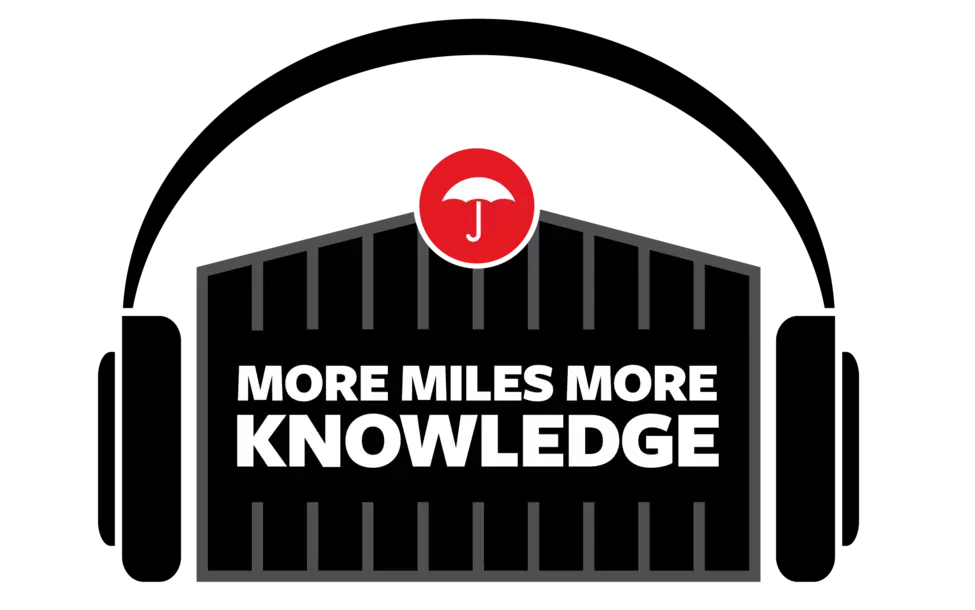
More Miles, More Knowledge
The transportation industry is continually evolving. From cargo theft trends to security best practices, have a listen and gather key takeaways on today’s most challenging issues.
Transportation Business Resources
4 Best Practices for Navigating FSMA Compliance
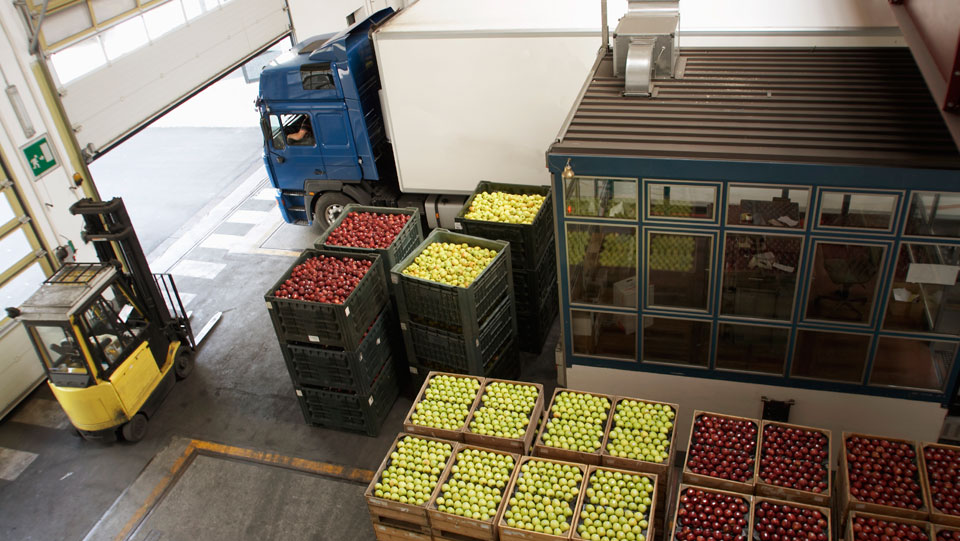
Transportation Business Resources
Cargo Theft: The What, How, Where and When
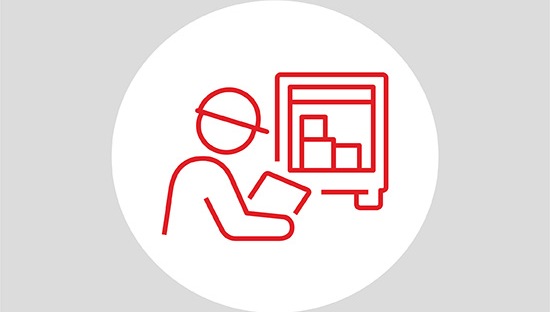
Transportation Business Resources
Cargo Theft and Broken Seals Can Be Costly to Transportation Businesses
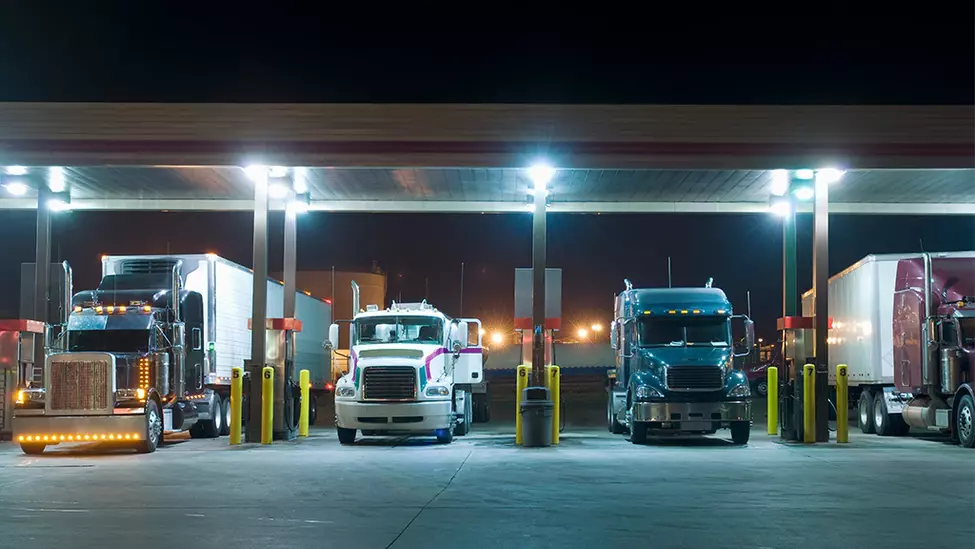
Transportation Business Resources
Transportation IoT: Opportunities and Risks
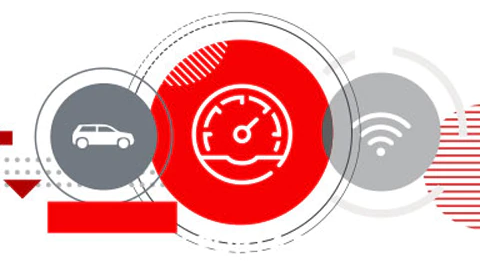
Transportation Business Resources
4 Ways Domestic Freight Brokers Can Avoid Unexpected Liability Claims
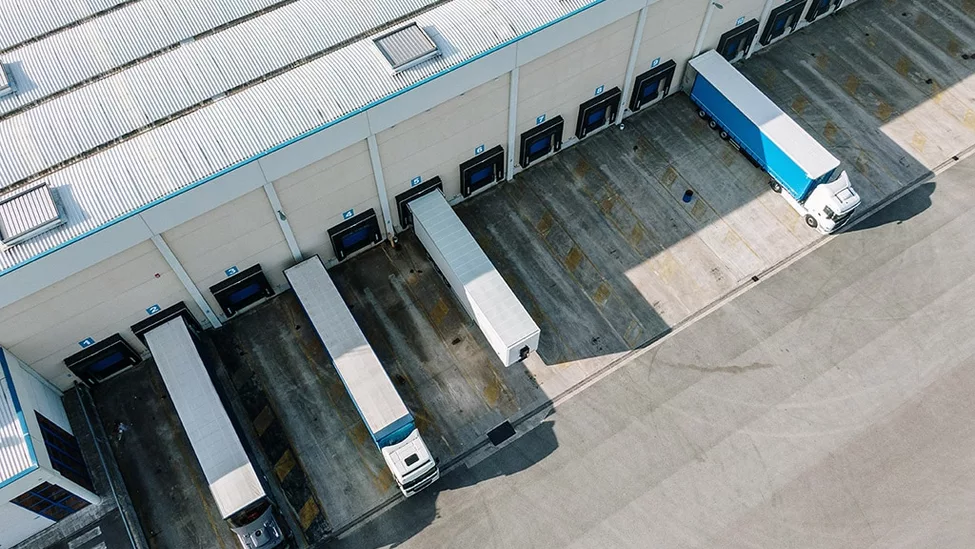
Transportation Business Resources
Managing Your Risks When Hiring Subhaulers

More Transportation Resources
Supply Chain Risk Management Resources
Life of a Piece of Cargo
There’s a lot that can happen to cargo on its journey. Protecting yourself from these cargo-related risks is key to protecting your supply chain.
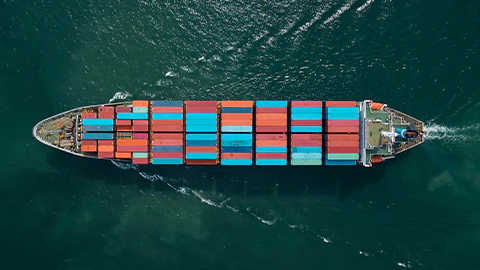
Supply Chain Risk Management Resources
Supply Chain Management Tips
Your business may be held liable for every step in your supply chain. Get tips on effective supply chain management with this infographic from Travelers.
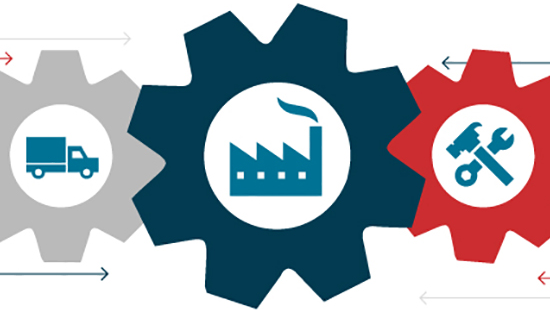
Supply Chain Risk Management Resources
The Evolution of the Freight Broker Model Brings New Risks
A new business model in the freight broker industry brings new risks as well as opportunities.
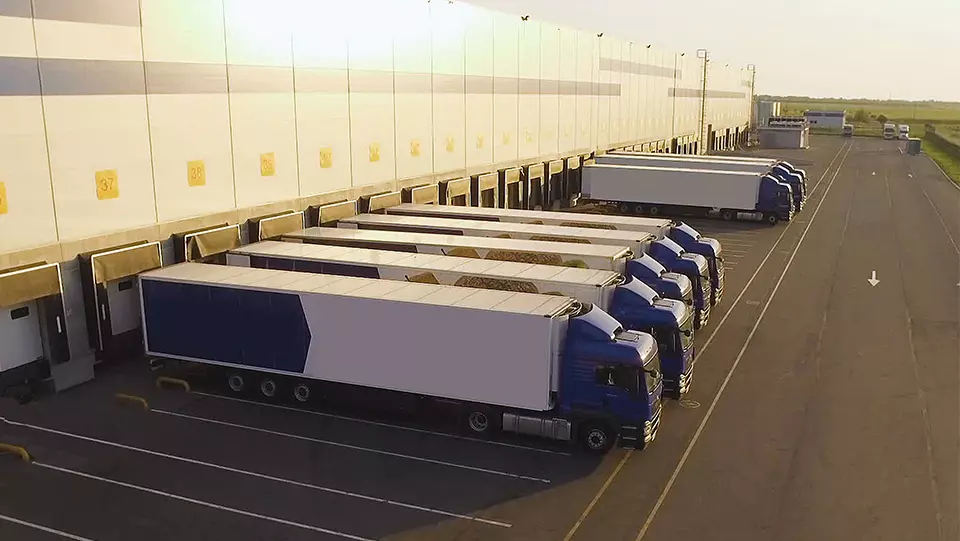
Supply Chain Risk Management Resources
Where Is Your Supply Chain the Most Vulnerable?
Compare your results to those who took the Supply Chain Pressure Test and learn about potential risks from weak links.
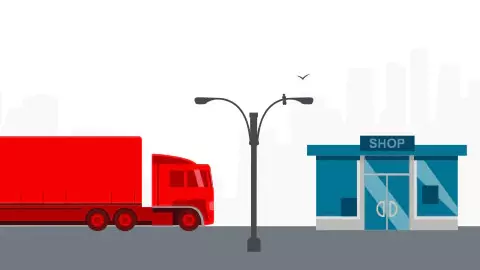
Supply Chain Risk Management Resources
4 Ways Freight Brokers Can Help Prevent Cargo Theft
Here are some ways that freight brokers can help prevent cargo theft, including contractual risk transfer, properly vetting carriers and recognizing potential cargo theft schemes.
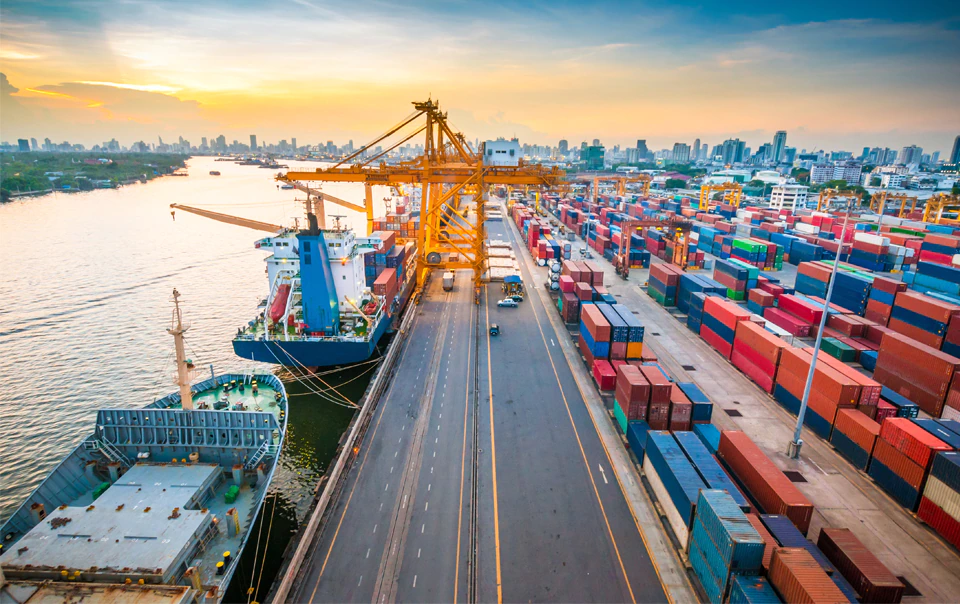
Supply Chain Risk Management Resources
5 Cargo Theft Tactics and How to Help Prevent Them
Cargo theft comes in many forms, from fictitious pickups to misdirected loads. Learn cargo theft types and tips for cargo theft prevention.

Driver & Fleet Safety
8 Elements of a Fleet Safety Program
A formal fleet safety program can help maximize fleet efficiency, enhance safety and more.

Supply Chain Risk Management Resources
Protecting Your Cargo in Transit
Taking steps to protect cargo can help prevent business interruptions. Learn about inspecting, securing and receiving cargo.
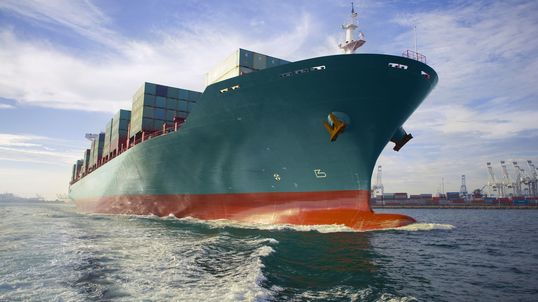
Related products & services
Transportation insurance
From vehicles to cargo, Travelers can help you find the right transportation coverage for today’s unique risks. A leader in insuring commercial vehicles, we provide a broad range of affordable commercial insurance coverages to help auto and trucking customers protect their business.
Special Investigations Group
Our Special Investigations Group is dedicated to theft protection and recovery, guiding clients through the adoption of procedures that harden their operations against criminal activity and assisting law enforcement on the recovery of stolen goods.
